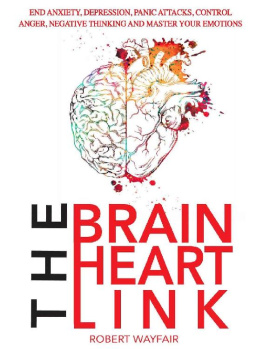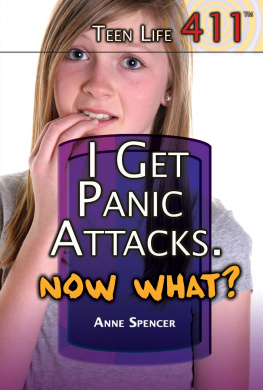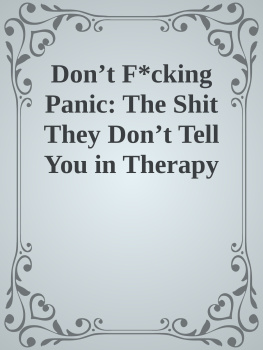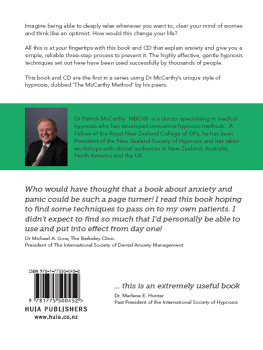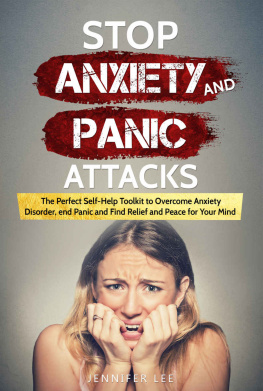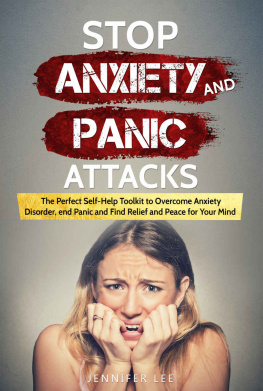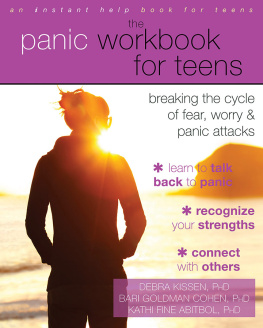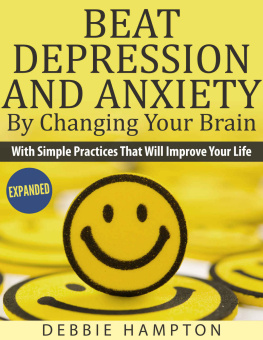THE BRAIN HEART LINK
End Anxiety, Depression, Panic Attacks, Control Anger, Negative Thinking And Master Your Emotions
Copyright 2019 by __________________Robert Wayfair_- All rights reserved.
This document is geared towards providing exact and reliable information in regards to the topic and issue covered. The publication is sold on the idea that the publisher is not required to render an accounting service, officially permitted, or otherwise, qualified services. If advice is necessary, legal or professional, a practiced individual in the profession should be consulted.
- From a Declaration of Principles which was accepted and approved equally by a Committee of the American Bar Association and a Committee of Publishers and Associations.
In no way is it legal to reproduce, duplicate, or transmit any part of this document by either electronic means or in printed format. Recording of this publication is strictly prohibited, and any storage of this material is not allowed unless with written permission from the publisher. All rights reserved.
The information provided herein is stated to be truthful and consistent, in that any liability, regarding inattention or otherwise, by any usage or abuse of any policies, processes, or directions contained within is the sole and utter responsibility of the recipient reader. Under no circumstances will any legal liability or blame be held against the publisher for any reparation, damages, or monetary loss due to the information herein, either directly or indirectly.
Respective authors own all copyrights not held by the publisher.
The information herein is offered for informational purposes solely and is universal as so. The presentation of the information is without a contract or any guarantee assurance.
The trademarks that are used are without any consent, and the publication of the trademark is without permission or backing by the trademark owner. All trademarks and brands within this book are for clarifying purposes only and are the owned by the owners themselves, not affiliated with this document.
TABLE OF CONTENTS
1. INTRODUCTION
Hello and welcome to my book. My name is Robert Wayfair and I thank you for your purchase. I poured all of my knowledge and experience into this book, and I sincerely hope that it helps you on some level.
You may be aware of some of the suggestions I put forth in this book (although Im confident It will help you in your struggles with anxiety and intrusive thoughts) , or you may be like me many years ago when I thought there was no other option to mental suffering beyond prescription medication. If youve never explored this sort of thing before then I promise you that there are many options beyond prescription meds, and you absolutely do not need medication to be happy and healthy.
Were in no short supply of natural solutions. Diet alone can play such a huge role in how someone feels mentally, and it blows my mind that a doctor wont take two seconds to ask a patient about their diet before prescribing an anti-depressant.
Anyway, first off I want to start this book with a little bit about myself.
1.1 My Story
I know I know the boring about me section. You probably want to get right to the good stuff, however I encourage you to read this section as you may identify with some of the things I mention.
The root of my issue is discussed a little in section 12 of this book, however I want to start with my introduction to anti-depressant medications. I was 22 years old. I had suffered with anxiety for probably about 8 years at that point. The anxiety snowballed into OCD, lack of self-confidence, and eventually a pretty bad depression. After many years of suffering I finally decided to get some help and made an appointment with my family doctor.
My doctor talked to me for all of about 10 minutes before prescribing me the medication Effexor (an SNRI Serotonin Norepinephrine Reuptake Inhibitor). I didnt question him on this decision because I didnt know any better and I was all too happy to take a medication which I thought it would fix my problem. He didnt ask me about my diet, he didnt recommend that I exercise, he didnt check my vitamin D status, he didnt suggest meditation, he didnt ask one single question about my experience of my suffering he just went straight to the meds.
This is beyond negligent behaviour for a doctor in my opinion, and is something that is happening to millions of people across the globe not just me. To add to the negligence there was no discussion of the side-effects of the medication, nor was there any discussion of the severe withdrawal many people experience when stopping Effexor.
Anyway back to the story. So I did initially receive some help from the medication, however after a few years of use my anxiety actually got considerably worse (which can be an issue with these meds). I decided it was time to get off of Effexor and face my issues without medication. I tapered off of the meds slowly over a period of about eight months. I was doing ok until finally stopping the medication altogether, at which point my life fell apart. A depression hit me like nothing Id ever felt before. Absolute darkness and despair. I came close to having panic attacks (which I had never experienced before in my life) because I felt like I was going to lose my mind. I got head zaps (feels like an electric shock passing through your head) whenever I moved my eyes. Overall it was the worst experience of my life.
Had I followed my medical doctors advice of halting the medication over a period of a month I probably would have killed myself. And I say that in all earnestness and not figuratively. I was told that theres no such thing as withdrawal and that what I was experiencing was due to my need for the medication. This is a common story you will be told if youre on medication and is absolutely NOT TRUE . Withdrawal is unquestionably real and is experienced by most people when stopping their medications.
I tried to make it without meds for a month or two, but the depression and darkness (including ongoing bouts of crying out of nowhere) was too strong for me to continue, so I started taking an SSRI (Selective Serotonin Reuptake Inhibitor, the most common type of anti-depressant) called Cipralex. I gradually crawled out of the depression over the next few weeks and eventually felt somewhat normal again after a few months.
It was over the next several years that I learned pretty much everything I lay out in this book. What is discussed herein allowed me to finally taper off of Cipralex and live a life free of anxiety and depression without the use of medication. It was a long and difficult journey, but Im happy to be here and happy to hopefully help you from falling into the same trap as I did.
1.2 The Pharmaceutical Theory of Disease
I put this in here because I know many of you are in the same situation, or will be in the same situation when you visit your doctor for mental health concerns. I know all too many people who have gone through this same scenario. Its a sad state of affairs that medications are still the go to for mental health because we know better . We have evidence showing that exercise is as effective as Prozac for depression yet doctors are prescribing these pills like theres no tomorrow.
Anti-depressant use in the United States rose 400% in teens and adults between 1994 and 2008. We have so much evidence to support alternative treatments for mental health yet these medications are being used more than ever and its sickening. Whats even worse is that a meta-analysis (an analysis of all existing studies on a certain subject) in 2010 concluded that anti-depressants provide minimal or non-existent efficacy for mild to moderate depression (medications were more effective for severe depression however).

